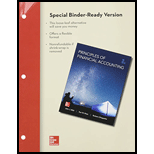
1. a.
Calculate break-even point in dollar sales for existing business strategy.
1. a.
Explanation of Solution
Break-even Point: It refers to a point in the level of operations at which a company experiences its revenues generated is equal to its costs incurred. Thus, when a company reaches at its break-even point, it reports neither an income nor a loss from operations. The formula to calculate the break-even point in dollar is as follows:
Calculate breakeven point in dollar sales for existing business strategy.
Working notes:
Calculate variable cost per unit.
Determine the contribution margin ratio.
Hence, the break-even point in dollar sales for existing business strategy is $1,727,273.
1. b.
Calculate break-even point in dollar sales for new strategy.
1. b.
Explanation of Solution
Break-even Point: It refers to a point in the level of operations at which a company experiences its revenues generated is equal to its costs incurred. Thus, when a company reaches at its break-even point, it reports neither an income nor a loss from operations. The formula to calculate the break-even point in dollar is as follows:
Calculate breakeven point in dollar sales for new strategy.
Working notes:
Calculate sales price per unit.
Calculate variable cost per unit.
Determine the contribution margin ratio.
Hence, the break-even point in dollar sales for new strategy is $1,727,273.
2.
Prepare a
2.
Explanation of Solution
Contribution Margin: It is defined as the difference between the sales and the variable cost.
Contribution margin income statement: Contribution margin income statement highlights the cost behavior as sales minus variable costs and shows the contribution margin. It also shows contribution margin minus fixed costs and finds the net income of the company.
Prepare a
| Company B | ||
| Forecasted Contribution Margin Income Statement | ||
| Existing business strategy | New strategy | |
| Sales | $2,000,000 | $2,880,000 |
| Less: Variable costs | $900,000 | $1,296,000 |
| Contribution margin | $1,100,000 | $1,584,000 |
| Less: Fixed costs | $950,000 | $950,000 |
| Income before taxes | $150,000 | $634,000 |
| Less: Income taxes (30%) | $37,500 | $158,500 |
| Net income | $112,500 | $475,500 |
| Return on sales (Net income/Sales) | 5.6% | 16.5% |
Working notes:
Calculate the amount of sales for existing business strategy and new strategy.
Calculate the amount of variable costs for existing business strategy and new strategy.
Want to see more full solutions like this?
Chapter 21 Solutions
Principles of Financial Accounting, Chapters 1-17 - With Access (Looseleaf)

 AccountingAccountingISBN:9781337272094Author:WARREN, Carl S., Reeve, James M., Duchac, Jonathan E.Publisher:Cengage Learning,
AccountingAccountingISBN:9781337272094Author:WARREN, Carl S., Reeve, James M., Duchac, Jonathan E.Publisher:Cengage Learning, Accounting Information SystemsAccountingISBN:9781337619202Author:Hall, James A.Publisher:Cengage Learning,
Accounting Information SystemsAccountingISBN:9781337619202Author:Hall, James A.Publisher:Cengage Learning, Horngren's Cost Accounting: A Managerial Emphasis...AccountingISBN:9780134475585Author:Srikant M. Datar, Madhav V. RajanPublisher:PEARSON
Horngren's Cost Accounting: A Managerial Emphasis...AccountingISBN:9780134475585Author:Srikant M. Datar, Madhav V. RajanPublisher:PEARSON Intermediate AccountingAccountingISBN:9781259722660Author:J. David Spiceland, Mark W. Nelson, Wayne M ThomasPublisher:McGraw-Hill Education
Intermediate AccountingAccountingISBN:9781259722660Author:J. David Spiceland, Mark W. Nelson, Wayne M ThomasPublisher:McGraw-Hill Education Financial and Managerial AccountingAccountingISBN:9781259726705Author:John J Wild, Ken W. Shaw, Barbara Chiappetta Fundamental Accounting PrinciplesPublisher:McGraw-Hill Education
Financial and Managerial AccountingAccountingISBN:9781259726705Author:John J Wild, Ken W. Shaw, Barbara Chiappetta Fundamental Accounting PrinciplesPublisher:McGraw-Hill Education





